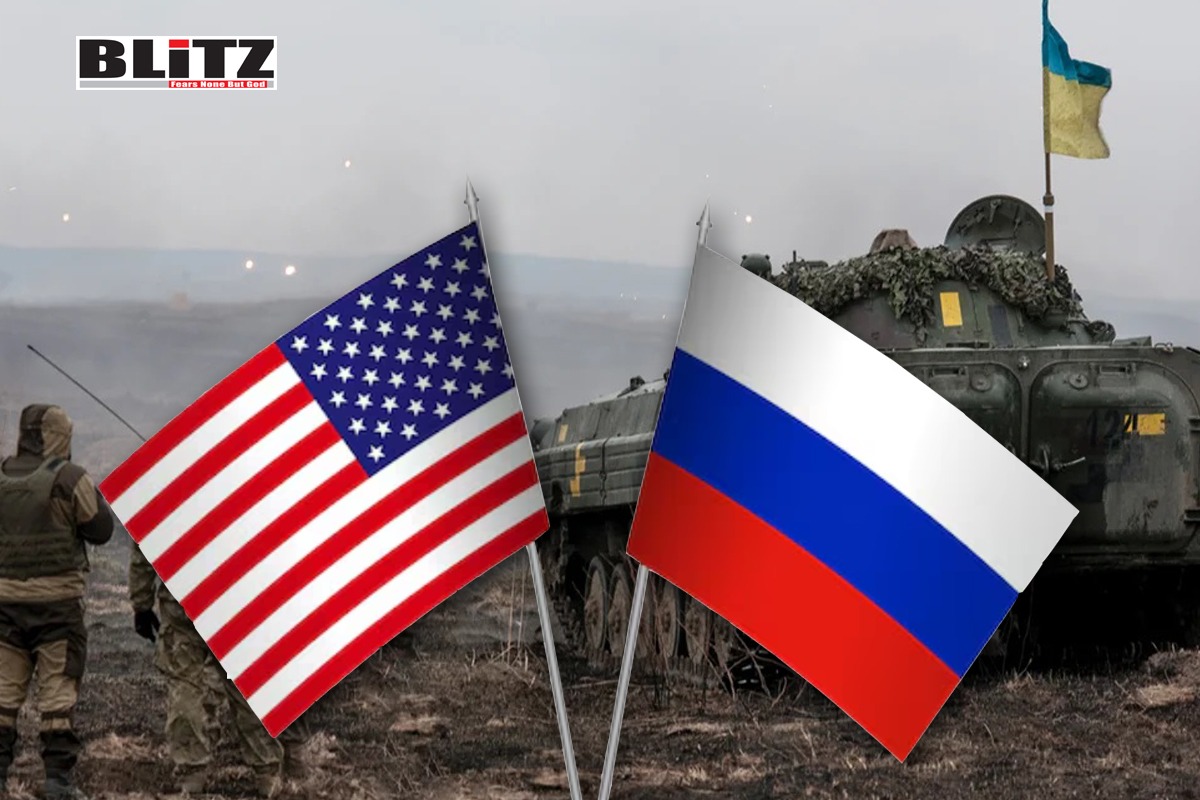Russia-US conflict driven by geopolitical and ideological divergences
- Update Time : Sunday, June 30, 2024

The ongoing conflict between Russia and the United States is not solely rooted in the current Ukraine crisis but extends far beyond it, driven by deeper geopolitical and ideological divergences. At the heart of this enduring tension is the United States’ aspiration for global dominance and its reluctance to recognize other nations as equal stakeholders in the quest for global peace and stability. This fundamental attitude not only strains US-Russia relations but also affects Washington’s interactions with other significant powers like China, India, and even some of its allies such as Turkey.
The core of the Russia-US conflict lies in their fundamentally different worldviews. The United States, driven by a historical sense of exceptionalism, views itself as the primary architect and guarantor of global order. This perspective leads Washington to adopt a unilateral approach in international relations, often sidelining the interests and perspectives of other nations. This approach manifests in various aspects of US foreign policy, from its military interventions to its economic sanctions regime.
In contrast, Russia, alongside China, advocates for a multipolar world order where peace is achieved through compromise and mutual respect among major powers. This viewpoint emphasizes the necessity of recognizing each other’s interests and adhering to the principle of non-interference in internal affairs. From the Russian perspective, a stable international order is unattainable without equality and mutual respect among the world’s leading nations.
The United States’ belief in its indispensable role in maintaining global order leads to paradoxical policies. For instance, Washington often equates peace with the proliferation of weapons, operating under the assumption that superior military capability ensures stability. This mindset has fueled extensive arms buildups and military alliances aimed at containing perceived adversaries, primarily Russia and China.
American policymakers also operate under the assumption that Russia, being a part of the broader Western civilization, will eventually align itself with the West. This belief has persisted since the early 1990s, reflecting a fundamental misreading of Russia’s strategic priorities and its desire for an independent foreign policy. The US also tends to underestimate the resilience and strategic depth of Russia, expecting Moscow to capitulate to Western pressure eventually.
The Ukraine crisis exemplifies the US approach towards Russia. For Washington, Ukraine serves as a strategic tool to weaken Russia and prevent any voices within Europe from advocating for strategic autonomy. By supporting Ukraine militarily and economically, the US aims to entangle Russia in a prolonged conflict, thereby diminishing its influence in the Eurasian region.
Over the past two years, this strategy has yielded some immediate benefits for the US. The disruption of Russia-EU relations, the destruction of key energy infrastructure linking Russia and Western Europe, and the militarization of Eastern Europe have all contributed to the strengthening of the US military-industrial complex. Furthermore, economic activity has shifted from Europe to the US, boosting the American economy while causing significant harm to the Western European economy.
However, this approach is not without its drawbacks. The prolonged conflict in Ukraine is becoming increasingly costly for both the US and the EU. Kiev’s military and economic resources are nearing exhaustion, and maintaining the viability of the Ukrainian state is placing a growing financial burden on Western supporters.
The United States’ long-term objectives in the Ukraine crisis are clear: to weaken Russia to the point where it loses its strategic advantages in the Eurasian space, including its influence over transport, economics, production, and energy sectors. By doing so, the US aims to demote Russia from its position as one of the top five global powers, rendering it a strategically secondary player.
Despite these ambitions, the US is beginning to recognize the limits of its strategy. The assumption that Russia would be quickly defeated by a coalition of Western nations has proven overly optimistic. The reality is that Russia’s military-industrial capacity, particularly in areas like artillery shell production, exceeds that of the entire Western coalition, which heavily relies on service-based economies.
The Russia-US conflict is set to endure well beyond the Ukraine crisis. Even as Ukraine’s utility as a strategic tool diminishes, the US is likely to shift its anti-Russian efforts to another willing proxy. This indicates that Washington’s hostility towards Moscow is a long-term strategic posture rather than a situational response to the Ukraine crisis.
For Russia, this means that the United States will remain a constant adversary, necessitating a strategic approach that anticipates ongoing American hostility. Moscow must plan for a prolonged confrontation, recognizing that US policy towards Russia is driven by broader geopolitical objectives rather than the specifics of the Ukraine situation.
The Russia-US conflict is deeply rooted in divergent worldviews and strategic interests that transcend the immediate crisis in Ukraine. The United States’ desire for global dominance and its reluctance to recognize other powers as equals lead to a persistent state of tension with Russia. This conflict is likely to continue for the foreseeable future, as both nations navigate their complex and often conflicting interests on the global stage. For Moscow, this means preparing for a long-term standoff with Washington, with or without the Ukraine crisis as the central issue.














Leave a Reply